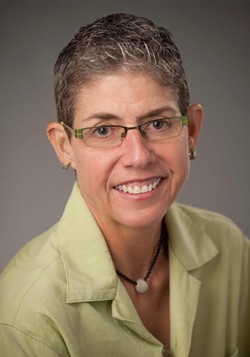“Where life is precious, life is precious.” Geographer Ruth Wilson Gilmore offered this mantra in one of the slew of webinars I was on this summer. She was talking about how our decades-long national divestment in social welfare is being laid bare by COVID-19 and asking what it actually takes to make life precious. At first I didn’t think much of the mantra, but it’s slowly grown on me as the death toll from the virus and from all forms of structural injustice continue to rise. Perhaps I’m holding tight to it as a shield against becoming inured. What would it mean to live this mantra?
I think of my students who have shown COVID symptoms, but because they are young (and likely also because they are Latina) have had to fight to get tested. And then, because they are not just students but workers, they have had to struggle with employers to be allowed to stay home to stop the spread and recover.
I think of the ER doctor who started a mask-making group I’m part of. She spoke of an “underground railroad” of doctors nationwide. When the crisis over PPE shortages had them desperate, they found each other via today’s social media railroad. They shared information about how to create masks that are nearly as protective as N95s by recycling materials from their hospitals.
I think of the email Dr. Shari Clarke, Vice President of Diversity and Inclusion, sent to the Eastern Washington University (EWU) community after the killings of Breonna Taylor and George Floyd. She wrote: “Like many of you I have been outraged, shocked and dismayed by the public lynchings we have recently witnessed. As the mother of African American sons, this brutality is magnified. I know the fear and anguish we experience from oppressive systems that do not address the racism that exists in society.”
Dr. Clarke spoke from the heart and experience. She asked us to consider what it would take to recognize Taylor’s life, Floyd’s life, and the lives of her sons as precious. She wrote before there was any official response from EWU, and in spite of having been laid off a few months prior. EWU students, faculty, and community members organized. Dr. Clarke was reinstated, and President Cullinan resigned her position as President of EWU.
The question now is whether we can right the EWU ship and put it on a sustainable, progressive, and just course. While there’s much understandable consternation over the university’s budget crisis, we have to understand that we can’t solve those problems with the same old traditional models we outgrew decades ago. Young local activists of color like Jac Archer are demanding deep transformation: “We want public investment and community repair. We want new policies, new systems and new institutions.”
As a regional comprehensive university, EWU’s top leadership should not be overwhelmingly white, straight, male, and non-disabled. Our university should lead, not sit silent or offer platitudes, on issues of social and racial justice. Students of color, Indigenous, non-binary, non-citizens (DACA, undocumented, International), disabled, and queer students and their families should be supported and included everywhere on campus, not just in small marginalized enclaves.
Just like we can’t “reopen” our economy before we have contained COVID-19, we can’t solve EWU’s budget crisis without addressing these underlying issues. There are no shortcuts to fundamental structural change, no shortcuts to ending oppressive systems, no shortcuts to holding life as precious.
In my program, we started a structural change process in fall 2018. We knew that our curriculum and degree offerings needed to be updated to meet the needs and interests of today’s students from eastern Washington. We are launching our new curriculum this fall and changing our name from Women’s and Gender Studies to Gender, Women’s & Sexuality Studies (GWSS).
We incorporated “sexuality” because it has been an expanding part of our curriculum. Last year we proudly launched a Sexuality & Queer Studies minor. Queer students, allies, and parents of LGBTQ kids quickly signed up. We put “gender” first in our new name because it is a more capacious category than “women.” It captures folks living authentic lives beyond a binary of men/women and reminds everyone that Trans Studies and Masculinity Studies are critical fields within the GWSS umbrella.
We can’t challenge the inequities unveiled by COVID-19 — including who is able to get tested, who is labeled “essential worker,” who is caring for our young and old, and which health care workers get PPE — without understanding the ways intersectional oppression works.
We can’t recognize how sexual/gender/domestic violence, child abuse, and elder abuse are escalating in this pandemic without feminist analysis. We can’t fully understand what leads an officer to hold his knee on George Floyd’s neck for nearly nine minutes without studying dominant white masculinity.
The four independent diversity programs at EWU (Africana, American Indian, Chicano/a/x, and GWSS), the Office of Diversity & Inclusion, the faculty senate, and committed employees from across campus are working to step into this historic moment, working to bring the university in line with its mission to serve this region. We need input, ideas and help from alumni, community leaders, parents — really, everyone who cares about Eastern. We are stretching ourselves into this moment, into being able to not just say, but to show: “Where life is precious, life is precious.” ♦
Judy Rohrer is director of Gender, Women’s & Sexuality Studies at Eastern Washington University.


